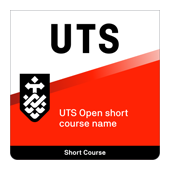This half-day course will be delivered as a face-to-face seminar on campus at UTS. Please note that times, speakers and topics in the following program are subject to change.
Course date: Wednesday 26 March 2025
8.30am – Arrival and registration
8:45am - Introduction from the Chair, Dr Teresa Somes - Lecturer, UTS Faculty of Law
8:50am – Topic 1: Updates from the Registry: Probate matters
Speaker: Sivashna Chetty - Senior Deputy Registrar, Supreme Court of New South Wales
9:50am – Topic 2: Significant family provision cases and trends in the last 12 months
Speaker: Mandy Tibbey - Barrister, 8 Wentworth Chambers
10:50am – Morning tea
11:10am – Topic 3: Improving legal planning for clients living with dementia
Speaker: Dr Nola Ries - Professor, UTS Faculty of Law
12:00pm – Topic 4: Probate undue influence
Speaker: Isabel McLelland - Senior Associate, Teece Hodgson & Ward
12:55pm – Closing comments by Chair
1:00pm – Close

















